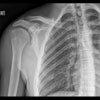
NEW YORK (Reuters Health), Nov 28 - Adding to evidence that a little wine can do a heart good, a new study suggests that women who drink moderate amounts may have less inflammation in their blood vessels.
Spanish researchers found that after four weeks of drinking two glasses of wine per day, women showed lower levels of certain inflammatory substances in their blood. The findings, reported in the American Journal of Clinical Nutrition, suggest a mechanism by which wine -- particularly red wine -- may protect the heart.
Numerous studies have found that wine drinkers tend to have lower rates of heart disease than teetotalers do. Research also suggests that higher levels of "good" HDL cholesterol may be one reason, though not a full explanation of the benefit.
Figuring out exactly how wine may protect the heart is important in order to prove that the link between wine and heart health is, in fact, a direct one, according to Dr. Emilio Sacanella, the lead researcher on the new study.
Studies that show wine drinkers to have better heart health do not prove that wine is the reason, explained Sacanella, of the University of Barcelona. Wine lovers may, for example, have generally better diets, higher exercise levels, or other heart-healthy habits, he told Reuters Health.
For their study, Sacanella and his colleagues focused on the potential effects of wine on inflammation. Inflammation is part of the body's response to injury. It's thought that chronic, low-level inflammation -- in response to stresses like smoking, high cholesterol and obesity -- contributes to the buildup of fatty deposits called plaques in the inner lining of the arteries.
Inflammation may also make these plaques more likely to rupture and create a blood clot that could then trigger a heart attack.
Sacanella's team recruited 35 healthy women who regularly drank amounts of wine. Each woman spent four weeks on a heart-healthy, but wine-free, diet, followed by four weeks in which they had a glass of red wine with lunch and dinner. They followed the same pattern with white wine.
Overall, the study found, the women's HDL levels climbed after four weeks of drinking, while their blood levels of a number of inflammatory substances, such as C-reactive protein, declined. Red wine had a more pronounced effect than white wine.
The greater benefit of red wine may be related to its higher concentration of polyphenols, according to the researchers. Polyphenols are plant compounds that act as antioxidants and may help reduce inflammation.
According to Sacanella, population studies have suggested that people who drink moderate amounts of wine -- about a glass or two per day -- may lower their risk of dying from heart disease by nearly one-third compared with nondrinkers.
"So a person who usually drinks up to this quantity of alcohol should maintain this healthy habit," he said.
However, he added, doctors cannot recommend that nondrinkers take up the habit, as some people are vulnerable to drinking problems and the health consequences that come with that.
By Amy Norton
Last Updated: 2007-11-27 10:36:01 -0400 (Reuters Health)
SOURCE: American Journal of Clinical Nutrition, November 2007.
Related Reading
Alcohol use unrelated to calcified atherosclerotic plaques, August 7, 2006
Copyright © 2007 Reuters Limited. All rights reserved. Republication or redistribution of Reuters content, including by framing or similar means, is expressly prohibited without the prior written consent of Reuters. Reuters shall not be liable for any errors or delays in the content, or for any actions taken in reliance thereon. Reuters and the Reuters sphere logo are registered trademarks and trademarks of the Reuters group of companies around the world.


















